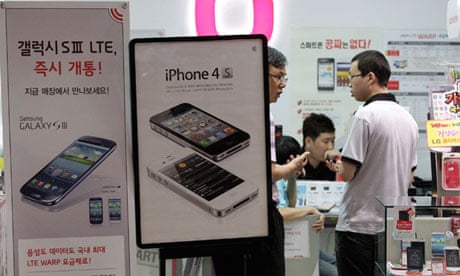When David Kappos became head of the United States Patent and Trademark Office four years ago, there was a brief flurry of hope that he might be to America's dysfunctional patent system what Joseph Kennedy had been to Wall Street back in the Great Depression: a reformer chosen from the ranks of the people who'd created the need for reform. Kennedy had been, among other things, a stock speculator who knew all the financial industry's corrupt practices, and he used the then-fledgling Securities and Exchange Commission to crack down on the abuses that had led to the crash and depression.
Kappos had been in charge of patents at IBM, a huge patent collector and, says patent system expert Greg Aharonian, often an abuser of the system itself. So, perhaps, it was only wishful thinking to imagine him as someone truly interested in the kind of reform the system needs. And just before he announced his imminent departure from the patent office, Kappos made an impassioned defense of the system, particularly as it applies to software patents, saying it's just fine.
This claim was quickly and easily debunked, of course, but it spoke to Kappos' mindset. (Who knows what to make of his ego, given the utterly bizarre comparison of Kappos to Thomas Edison, Nikola Tesla and other genuine American inventors in the patent office's offering of – I'm not joking – "USPTO Trading Cards" in the kids' pages of its website.)
It is not fine, at all. Kappos will leave a system that is, in many ways, worse than the one he inherited, if that is possible. He is not entirely, or perhaps even mostly, to blame; credit Congress, as is so often the case, with inaction on the worst problems in a recent law that purported to improve the system.
You can see the damage everywhere. Major companies are spending more on patent lawyers than research and development. Apple currently looks like the worst abuser among companies that actually make things, with its global jihad against the Android operating system as part of its aim to monopolize the smart-device industry. After a major recent jury verdict against Samsung, Mark Cuban, the tech billionaire and investor, tweeted, "If the IBM PC was created in this patent environment there would be no Apple. They would have sued them out of existence." Apple plainly agrees, and is taking advantage of an environment that invites abuse.
Smaller ones are coughing up licensing fees that critics accurately call legal extortion, settling ridiculous claims from patent "trolls" for amounts less than they'd have to pay lawyers to defend, no matter how baseless the claims might be. The patent trolls – especially the companies that produce nothing, but collect patents they try to leverage against everyone else – are a cancer to true innovation and progress.
Fred Wilson, principal at Union Square Ventures, has slammed software patents in general, saying that they are a "tax on innovation" that is only deterring progress. I'm torn on the issue of software patents, though they are clearly being grossly abused in current form. As software becomes more and more a part of everything, it's difficult to know how we can separate traditional invention from the should-be-unpatentable mathematics of software. But we'd better try, or we're in trouble.
At the heart of the problem – and we should keep this squarely in mind – is a federal machine that, willy-nilly, grants patents that never should have been allowed in the first place. It is a machine created and run by lawyers, for lawyers, and which has absolutely no incentive to reform itself. With only a few exceptions, such as an initiative to ferret out so-called inventions that are not actually new – by some accounts, the majority of things that are patented these days – Kappos remained part of a broken, counterproductive system that remains defiant in the face of its shortcomings.
